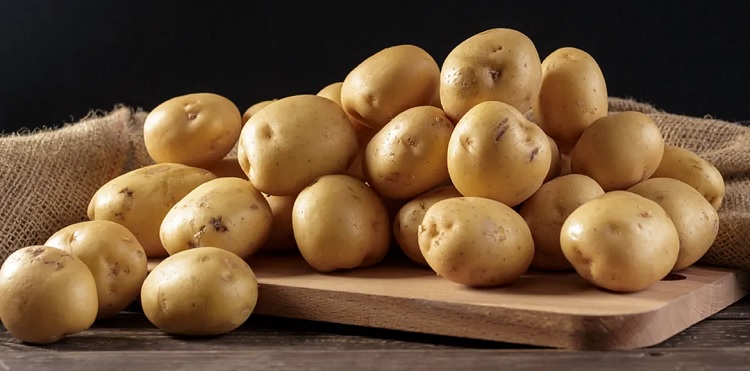Is Olive Oil Good for Weight Loss?
Olive oil has been a part of our cooking to enhance the flavors of our recipes. While it possesses many health benefits, it has been claimed to be beneficial for weight loss by experts in recent years. People are becoming more conscious of their lifestyles, especially their eating habits. There is a rise in awareness among people about the health hazards of being obese or overweight. They shift their focus toward healthy weight loss methods as a result.
While fats are generally said to enhance weight gain, we have to realize the fact that good fats can aid in weight loss. Olive oil is one such method that is alleged to help you lose weight naturally. We shall dive into the features of the oil, its usage, and its touted weight loss benefits to give you a clear picture.

How Is Olive Oil Produced?
Olive oil is prepared by processing the olives taken from an olive tree and extracting the oil. One tablespoon of olive oil contains 14g fat, 10g monounsaturated fatty acids, 2g saturated fat, and 1.5g polyunsaturated fat.
The fat in the oil aids in the absorption of fat-soluble vitamins such as A, D, E, and K from your food. Besides that, it can lower inflammation and reduce blood pressure, which is beneficial for your cardiovascular health.
Olive Oil Diet for Weight Loss
The olive oil diet involves consuming foods that are high in monounsaturated fatty acids. Olive oil is a mainstay of the Mediterranean diet. The Mediterranean diet is the ideal diet regimen in this regard since it contains an adequate amount of monounsaturated fatty acids.
Whole grains, fruits, nuts, vegetables, beans, legumes, potatoes, fish, seeds, and a trace amount of olive oil are all included in the diet. You may wonder how it works for weight loss. It lowers your carbs intake, which makes your body burn stored fat for energy. This calorie-deficit diet curbs your cravings and regulates your calorie intake, which supports weight loss.
Does Olive Oil Work for Weight Loss?
Olive oil is rich in monounsaturated fatty acids that lower your calorie intake and prevent weight gain. The monounsaturated fatty acids in the oil reduce fat accumulation and help maintain a healthy weight by increasing hepatic lipase functions and lowering insulin levels. Besides that, olive oil is packed with medium-chain triglycerides that increase the production of appetite-regulating hormones, including leptin and peptide YY.
In this way, olive oil helps you have a feeling of satiety and curbs your cravings, which supports weight loss. Medium-chain triglycerides found in olive oil aid in the reduction of weight through lipid oxidation. Apart from that, extra virgin olive oil (EVOO) is found to reduce body fat and aid in weight loss.
Is Olive Oil Fattening?
Olive oil is alleged to help people lose weight. Despite its numerous health benefits, some people are concerned about its effects on weight gain since it is fat. The concerns are legitimate. But scientific studies reveal that foods rich in monounsaturated fatty acids can help you lose weight, as they do not increase your insulin levels.
Insulin plays a significant role in weight gain. Olive oil, when consumed in recommended quantity, along with a Mediterranean diet can regulate insulin levels and aid in maintaining a healthy weight. Since olive oil includes fat, it curbs your hunger and helps you have a fuller feeling. You have a reduction in your appetite as a result. Thus, the fat in olive oil does not cause fattening and promotes weight loss if taken in a proper quantity.
Science Research Behind Olive Oil
There are many scientific studies demonstrating the effects of olive oil on weight. They help you gain clarity about the health benefits of the oil. You can also find the truth behind the weight loss claims of olive oil. A 2008 study published in the New England Journal of Medicine suggests that the Mediterranean diet can be a better alternative to low-fat diets. The study shows that the Mediterranean diet, which includes olive oil as a staple, can help with weight loss comparatively. This effect of weight loss is linked to the glycemic control it provides.
A 2018 clinical trial shows that the consumption of extra virgin olive oil reduced body fat in obese women. Besides that, the study reveals that EVOO improved blood pressure in those women. According to a 2003 study, the substitution of saturated fat with monounsaturated fat in the diet can result in small but significant weight and fat mass loss. Thus, an olive oil diet can promote weight loss, as per this study.
How Can You Use Olive Oil for Weight Loss?
Olive oil can be easily added to your diet. You can either consume one tablespoon of olive oil orally or use it in your cooking. It enhances the taste of your food, along with providing weight loss benefits. You can do olive oil massage, which can help reduce inflammation, muscle sprain, and cramps. But there is no evidence suggesting the effects of this massage on weight loss.
Olive Oil with Lemon
You can also combine a tablespoon of olive oil with the juice of half a lemon and consume it during breakfast. This consumption detoxifies your body and enhances your metabolism. There will also be a reduction in your appetite from this consumption, which supports weight loss.
Olive Oil in Salads
Olive oil can be used in salad dressings and consumed. When you consume nutritious salads in this way, you can burn fat effectively. Cayenne pepper, ginger, and cucumber can also be added to this salad. When combined with olive oil, these elements can aid in effective weight loss.
While you consume olive oil for weight loss, you are advised not to take more than our tablespoons of the oil.
How to Choose the Ideal Olive Oil for Weight Loss?
While there are different kinds of olive oil marketed worldwide, it is best to choose extra virgin olive oil. You might be intrigued as to how regular olive oil and extra virgin olive oil differ. There is a significant difference between them since extra virgin oil is made without the use of heat.
Apart from that, extra virgin oil is pure and has a strong flavor. But regular olive oil includes some amount of refined oil to give it a mild taste. Thus, choosing extra virgin oil for consumption helps you get the best weight loss results.
Health Benefits of Olive Oil
Olive oil provides you with many health benefits that promote your overall well-being. We shall look into its major health benefits.
Antioxidant and Anti-inflammatory Properties
The antioxidants of olive oil combat free radicals damage and prevent various chronic conditions. Free radicals cause cell damage in your body, which can result in chronic conditions. Since it is packed with the antioxidant hydroxytyrosol, it contains anti-inflammatory properties that prevent health conditions associated with inflammation.
Supports Heart Health
Olive oil is found to regulate blood sugar levels, reduce inflammation, and lower LDL cholesterol. Thus, it promotes cardiovascular health. The monounsaturated fatty acids in olive oil lower blood pressure, thereby lowering the risk of stroke and heart disease.
Enhances Your Brain Health
Olive oil enhances brain cell formation and improves recovery of brain cell damage by stimulating the levels of brain-derived neurotrophic factor and nerve growth factor. It also supports improved memory. Your cognitive function also increases by its consumption. Hence, olive oil enhances your brain health.
Besides these benefits, consuming olive oil through the Mediterranean diet may reduce the risk of Alzheimer’s disease, type 2 diabetes, and certain cancers. This consumption can also aid in treating rheumatoid arthritis.
Downsides
Though olive oil is found to have many benefits, we have to note that it is still high in calories. Thus, we have to limit its consumption to prevent weight gain. You should not exceed taking four tablespoons of olive oil per day since it may cause weight gain. Similar to other high-fat foods, it may stimulate hunger when you consume too much olive oil.
The Bottom Line
Olive oil is found to offer many weight loss benefits. The monounsaturated fatty acids and medium-chain triglycerides found in the oil promote fat burning and prevent weight gain.
When you follow a Mediterranean diet regularly that includes olive oil as a staple ingredient, you can lose a significant amount of weight. Moreover, this diet helps you maintain a healthy weight over time. You can also consume extra virgin olive oil to get better weight loss results. Thus, olive oil is best to be consumed in smaller quantities to lose weight.
Faqs
You can take two to three tablespoons of olive oil a day to lose weight. Olive oil consumption helps to lower blood sugar levels, which prevents weight gain. You can mix a tablespoon of olive oil with half a lemon and consume it to lose weight effectively.
You can add a tablespoon of olive oil to the juice of half a lemon and mix it. When you drink this mix, it relieves your digestive problems and aids in reducing your belly fat.
The ideal time to consume olive oil for weight loss is the morning. Taking olive oil on a daily basis in the morning helps you get rid of toxins and excess fat from your body. It provides you with more energy to engage in any physical activity throughout the day.






